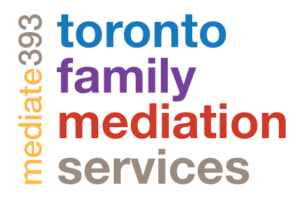The Benefits of Mediation
03.02.2022
By: Mediator-In-Training Julia Tremain
I have been a family law lawyer for more years than I care to remember, and as such I have had the benefit of participating in several mediations, both as counsel for a party and as counsel for the child or children. I am happy to see that mediation and other methods of alternative dispute resolution are increasing both in popularity and in availability for a few reasons, not the least of which are legislative changes and the long-term effect of the pandemic. This is a welcome change, as mediation, if done well, can give the clients control over the outcome in a timely and cost-efficient manner.
Being a Mediator-In-Training at Riverdale for the past few months has been a fascinating experience. It has given me the opportunity to observe several different mediators deal with a variety of issues, from parenting time and decision-making, to support and property issues.
Some of the mediations run over multiple days, while others are conducted quickly, with the two intakes and the mediation proper all done on the same day. There are certainly stylistic differences between the mediators, but they are all excellent and they all take great care not only to screen for power imbalances but also to monitor the well-being of the clients as the mediation progresses.
In my view, one of the keys to a successful mediation is preparation. The mediator must be prepared, by reviewing the intake forms, identifying the issues, and screening the clients. More importantly, the clients need to be prepared by their lawyers.
Whether clients have lawyers or not, it would be helpful if clients could come to the process having thought about different options for resolving the matter. Sometimes clients have unrealistic expectations about what a mediator can do, and it is important that they have a clear understanding of what is going to happen.
It is interesting to watch how mediators can break up a big issue into smaller chunks, and to see how they bring the clients closer to agreement by dealing with smaller pieces at a time. Again, it highlights the importance of ensuring that the clients are prepared to think “outside the box” and to consider solutions that may not be obvious from the outset.
For example, the issue may be about a parenting time schedule but if the parents are having trouble communicating, there may be some merit to exploring how the communication can be improved, and setting some boundaries around that, prior to talking about a change in the actual parenting time.
There is much more to learn, and I am enjoying this journey. Every file and every mediator teaches me something new, and for that I am grateful.

